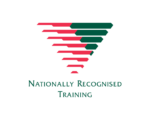Home / Domestic Automotive Courses / Certificate III in Light Vehicle Mechanical Technology
Certificate III in Light Vehicle Mechanical Technology
AUR30620
The AUR30620 Certificate III in Light Vehicle Mechanical Technology is for clients who want to gain the skills and knowledge required to perform a broad range of mechanical tasks on a variety of light vehicles in the automotive service and repair industry. Clients will generally have an aptitude for mechanical technology.
Entry Requirements
- 18 years of age and over
- Computer skills and your own personal computer to complete the assessments electronically
- Proficiency in English (successfully complete the college Language, Literacy and Numeracy assessment)
Career Path
Light Vehicle Automotive Technician (Motor Mechanic)
Course Duration
- 83 weeks (20 contact hours per week – including holidays)
- Holidays will vary based on each intake date, but the maximum is 11 weeks.
Assessment Methods
There are 3 assessment components which include –
1. Underpinning Knowledge Assessment (theory questions)
2. Case Scenario Assessment (simulation)
3. Practical Observation
Students need to complete a Training Logbook which is formative learning and assessment. Written Assessments will be completed electronically in class and approximately 2 hours/week in your own time. Practical Assessments are completed during class.
Required Textbooks
The following textbooks are highly recommended and students are encouraged to source their own as they are not included in the course fees.
- Automotive Mechanics (10th ed) by May & Simpson
Personal Protective Equipment (PPE)
Students are to source their own safety shoes and the College will provide hearing and eye protection.
Hand Tools
The College will provide all hand tools and equipment for use during all practical classes.
What is Recognition of Prior Learning?
Recognition of Prior Learning (RPL) is a process that provides Students with an opportunity to receive credit for the formal and non-formal learning that has been undertaken since leaving school. The RPL process considers all relevant qualifications, skills, knowledge and experience that have been acquired throughout your working life. The RPL Assessment process enables the Assessor to collect a range of evidence to assist Students with either completing a full qualification or a partial qualification depending on their skills, knowledge and experience. If you have been granted a partial qualification throughout the RPL process, then you will be able to complete your qualification by undertaking the necessary gap training identified by our Assessor with our College.
This Qualification consists of 20 Core and 16 Elective units.

Unit code | Unit Name | Core / Elective |
AURAEA002 | Follow environmental & sustainability best practice in an automotive workplace | C |
AURASA102 | Follow safe working practices in an automotive workplace | C |
AURACA101 | Respond to customer needs and enquiries in an automotive workplace | E |
AURTTK102 | Use and maintain tools and equipment in an automotive workplace | C |
AURTTK001 | Use and maintain measuring equipment in an automotive workplace | E |
AURETR129 | Diagnose and repair charging systems | C |
AURTTA009 | Carry out mechanical pre repair operations | E |
AURTTA104 | Carry out servicing operations | C |
AURTTE104 | Inspect and service engines | C |
AURTTX102 | Inspect and service manual transmissions | E |
AURTTX103 | Inspect and service automatic transmissions | E |
AURTTQ001 | Inspect and Service final drive assemblies | E |
AURTTF101 | Inspect and service petrol fuel systems | C |
AURTTB101 | Inspect and service braking systems | C |
AURLTB103 | Diagnose and repair light vehicle hydraulic braking systems | C |
AURLTB104 | Diagnose Complex Faults in Light Vehicle Braking Systems | E |
AURTTD002 | Inspect and service steering systems | E |
AURLTD104 | Diagnose and repair light vehicle steering systems | C |
AURLTD105 | Diagnose and repair light vehicle suspension systems | C |
AURLTD109 | Diagnose complex Faults in Light Vehicle Steering and Suspension Systems | E |
AURTTA017 | Carry out vehicle safety inspections | E |
AURETR125 | Test, charge and replace batteries and jump-start vehicles | C |
AURETR112 | Test and repair basic electrical circuits | C |
AURLTJ113 | Remove, inspect and refit light vehicle wheel and tyre assemblies | E |
AURTTJ011 | Balance wheels and tyres | E |
AURETR130 | Diagnose and repair starting systems | C |
AURLTZ101 | Diagnose and repair light vehicle emission control systems | C |
AURTTA118 | Develop and carry out diagnostic test strategies | C |
AURETR131 | Diagnose and repair ignition systems | C |
AURETR123 | Diagnose and repair spark ignition engine management systems | C |
AURTTC103 | Diagnose and repair cooling systems | C |
AURLTE102 | Diagnose and repair light vehicle engines | C |
AURLTE104 | Diagnose complex faults in light vehicle petrol engines | E |
AURTTQ103 | Inspect and Service driveshafts | E |
AURTTD004 | Inspect and service suspension systems | E |
AURTTA125 | Diagnose complex faults in vehicle integrated stability control systems | E |
Course Fees
The amount you pay for your course will depend on the type, of course, you are enrolled in.
For the most up-to-date information, please contact us
Intake Dates | Holidays |
15-May-23 | 13 Weeks |
12-Jun-23 | 15 Weeks |
17-Jul-23 | 13 Weeks |
14-Aug-23 | 13 Weeks |
11-Sept-23 | 14 Weeks |
16-Oct-23 | 13 Weeks |
20-Nov-23 | 13 Weeks |
15-Jan-24 | 13 Weeks |
19-Feb-24 | 13 Weeks |
18-Mar-24 | 14 Weeks |
15-Apr-24 | 13 Weeks |
20-May-24 | 13 Weeks |


